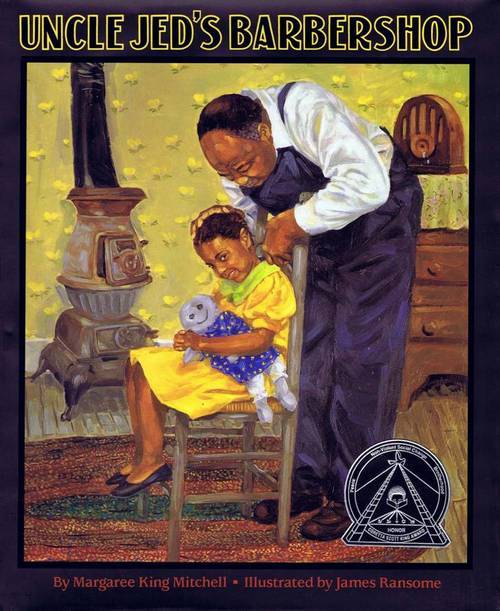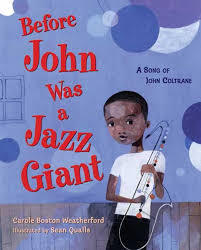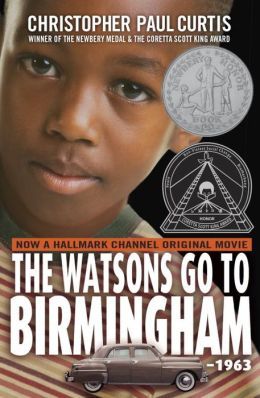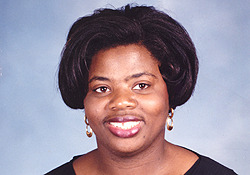CBC Diversity: A Conversation with Jonda C. McNair, Chair of the Coretta Scott King Book Awards Committee

Interview conducted by Wendy Lamb
Wendy Lamb:
Can you please tell me something of your background, and your work in children’s books?
Jonda McNair:
After graduating from high school in my hometown of Macon, Georgia, I attended the University of Florida where I earned both my bachelor’s and master’s degrees in elementary education. One of my professors at the University of Florida, Dr. Linda Leonard Lamme, really turned me on to children’s books. She introduced me to authors and illustrators like James E. Ransome, Eloise Greenfield, and Floyd Cooper. I remember her sharing books such as Uncle Jed’s Barbershop by Margaree King Mitchell with our class.

After graduation, I kept in touch with Dr. Lamme while I was teaching elementary school in Macon and she encouraged me to pursue a doctoral degree in children’s literature at The Ohio State University. She knew about its exceptional program in children’s literature. After five years of teaching students in kindergarten, first, and second grade, I resigned from my position and moved to Columbus, Ohio to attend graduate school. It was there that I had the opportunity to work with Dr. Rudine Sims Bishop, a leading scholar of African American children’s books. These two women have had a profound impact on my career and life.
Currently I am an associate professor of Literacy Education at Clemson University in South Carolina and I teach reading methods and children’s literature courses for early childhood, elementary, and special education majors. I mainly teach undergraduates but I occasionally teach graduate students working on their master’s and doctoral degrees in literacy education.
WL:
As an educator, you have a Family Literacy Project: I Never Knew There Were So Many Books about Us: Parents and Children Reading African-American Literature Together. I read a very interesting interview with you on The Brown Bookshelf about this.
Are you working on similar programs or initiatives now?
JM:
Initially, a grant from NCTE (the National Council of Teachers of English) funded the Family Literacy Project. I was also supported by the local chapter of Alpha Kappa Alpha Sorority, Inc. Eventually the funding ran out, but my sorority members liked the program so much they wanted to contribute and keep it going. Now we have an annual half-day program at the public library in August. Ten to fifteen families participate. I present a power-point presentation, talk about the Coretta Scott King Award, and share tips on how to conduct interactive read alouds. Each family gets to choose 10 books written by and about African Americans, along with CSK stickers, and People Colors crayons from Lakeshore Learning Materials. The program has become quite popular in our community; families hear about it and get on the waiting list.
At Clemson, I’m the faculty advisor for the IRA (International Reading Association) Student Council and most of its members are undergraduates majoring in early childhood and elementary education. I wanted the students to participate in a service project that would entail giving back to the community, and also books. I reached out to the Upstate Homeless Coalition of South Carolina, a non-profit organization dedicated to ending homelessness. This organization provides housing and also puts on programs for children and their families such as annual Christmas parties. We create goody bags to be handed out to the children at the Christmas parties. We create bags for newborns and up, to age 18. Every child gets a book, even the babies, who also get several pairs of socks and a hat. Older children get items such as crayons, marbles, Play-Doh, or a game. We’ve been doing this for about 6 or 7 years now.
Recently I decided to go after a grant to purchase books and other literacy materials (e.g., a writing suitcase) so these children will have access to print in their homes and be able to carry these items with them in the event that they have to move.
WL:
Why did you take on the role of chair of the Coretta Scott King Book Awards?
JM:
Honestly, I was a bit hesitant to take this role on due to all of my responsibilities as an associate professor (who is going up for full professor during my tenure as Coretta Scott King Chair), but Chrystal Carr Jeter, the previous Chair, was very persuasive and I have received a lot of support from her and the rest of the committee.

I feel like it is a really important award that promotes African American children’s literature and its creators—a passion of mine and the area in which I conduct my academic work. It also gives me a chance to interact with people (e.g., Walter Dean Myers, Kadir Nelson, Jacqueline Woodson, Tonya Bolden, etc.) whose work I admire and read.
WL:
What are your goals as chair?
JM:

I have two main goals to accomplish as CSK Chair. The first is to promote the 45th anniversary of the award and we have a number of things in place for this. For example, we are planning a special panel discussion (with Andrea Davis Pinkney serving as the moderator) with winners of the award over several decades. This will take place during the 2014 annual convention in Las Vegas. The second goal I hope to accomplish is to see that a CSK award-winning book is developed into an app. I have two young nephews who love the children’s book apps on my iPad and the only one I have that is written by an African American is Freight Train by Donald Crews—though the subject matter is more “neutral” in a sense. I would love to see a book like Before John Was a Jazz Giant: A Song of John Coltrane by Carole Boston Weatherford be made into a picture book app for children.
WL:
The American Library Association website says that the Awards “are given annually to outstanding African-American authors and illustrators of books for children and young adults that demonstrate an appreciation of African-American culture and universal human values.”
Are American writers whose more immediate roots are not in Africa but somewhere else—such as a Haitian-American writer, or a Jamaican-American writer—also eligible?
JM:
Yes. One of the criteria is that the author self-identifies as African American, whatever his or her roots, but the book can be about the black experience worldwide, such as a book set in Brazil or one about Nelson Mandela.
WL:
Has the pool of strong submissions grown in the last ten years?
JM:
Unfortunately, no. The number of books published by and about folks of color has remained relatively stable over the last 10 years. The numbers are still low, especially in regard to Native Americans. For example, according to the statistics compiled by the Cooperative Children’s Book Center at the University of Wisconsin—Madison, in 2002 and in 2012, 6 books by Native Americans were published. This is disturbing, especially in light of the stereotypical thinking about Native Americans that is all too commonplace in our society.
WL:
It seems that there are more black men who are artists, rather than novelists. Is this changing?
JM:
I too have noticed that women tend to write and that men tend to illustrate, though I am beginning to see a few men like Kadir Nelson who illustrate begin to write as well. I do wish there were more African American female illustrators like Faith Ringgold, Shadra Strickland, and Sonia Lynn Sadler (who recently passed away). In my opinion, this trend is not changing, either.
WL:
How can publishers do a better job of finding, and publishing, writers and artists of color?
JM:
I don’t know a lot about how the publishing world works but I do feel like publishers need to make a concerted effort to seek out new authors and illustrators of color. One way might be to develop writing contests similar to those sponsored by the Council on Interracial Books for Children. The winners of those contests included folks like Mildred Taylor and Walter Dean Myers—and we all know what an impact they have had.
I think publishers need to seek out employees (e.g., editors, marketing managers, etc.) that represent the diversity of the world in which we live. When I visit publishing booths at conferences, the majority of the people that I see appear to be White. Having a more diverse publishing workforce could possibly impact the finding and publishing of artists of color. For example, I was really impressed with the Jump at the Sun imprint that Andrea Davis Pinkney created while she worked at Hyperion. I also think that working with editors of color might be a benefit to White authors, especially those who choose to write about people of color.
WL:
Absolutely. And white editors can benefit from working with editors of color. About finding authors: publishers are concerned because we simply don’t receive many submissions from writers of color. As you point 
out, contests were fruitful—another example is of Christopher Paul Curtis submitting The Watsons Go To Birmingham-1963 to the Delacorte First YA Novel contest. But it seems that nowadays promising writers tend to find an agent rather than submit to a contest. Since the majority of what we publish comes from agents, the CBC Diversity Committee is planning a Diversity Dialogue with agents to talk about what we can do to find writers of color, and increase submissions.
Our committee is also committed to helping to create a more diverse workplace. Our members often speak about careers in publishing at local colleges, and we’re exploring ideas such as internships, and a scholarship fund to support people at entry level.
Jonda, it’s been such a pleasure to talk to you. Thank you so much for your time, for your inspiring ideas, and for the important work you’re doing as an educator, and with the American Library Association.

Jonda C. McNair is the chair of the Coretta Scott King Book Award Committee, which oversees the awards jury and other Coretta Scott King committees such as membership and publications. She served as jury chair a few years ago. She is an associate professor at Clemson University and co-edited Embracing, Examining and Evaluating African American Children’s and Young Adult Literature.

